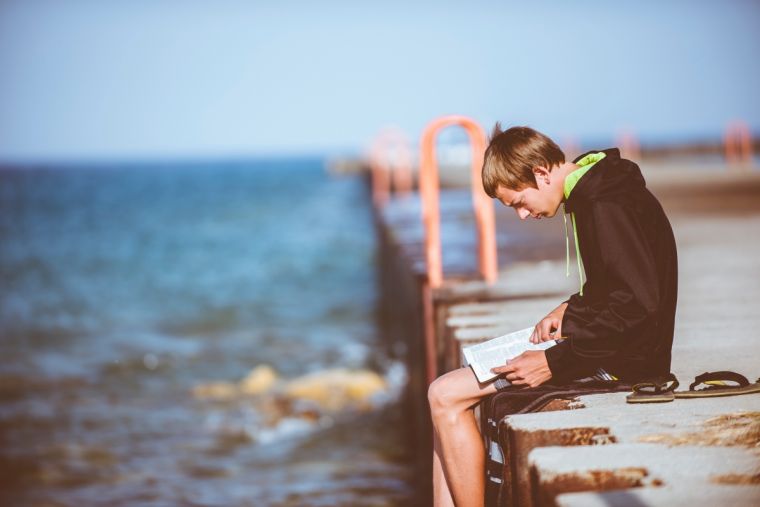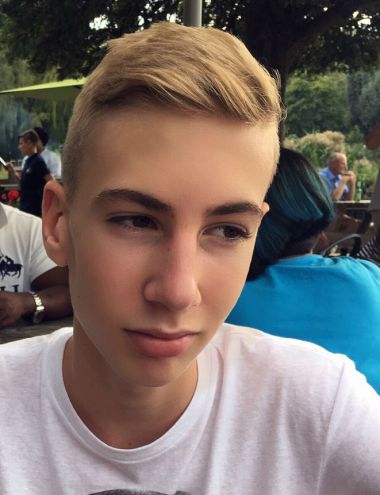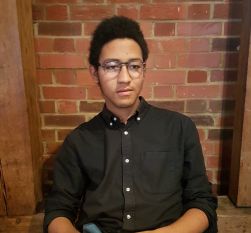In today's world, people need to understand religion. So why is Religious Studies GCSE in decline?

Many teenage boys and girls will be resigned to doing retakes of their GCSEs after pass rates fell and the number of high grades plummeted in the biggest exam shake-up in decades.
In addition, the number of pupils in England and Wales taking GCSE Religious Studies full course fell for the first time in more than a decade, down 4.6 per cent against 2016, to 269,839.
More than 500,000 teens, most aged 16 but thousands also doing retakes from last year, received their results today with the number passing the exams with a C grade or above falling to 66.3 per cent, the lowest it has been since 2008.
With harder exams and a new grading system in English and maths that will run across all subjects next year, the passes and top grades in those subjects also fell. Nearly a third of 16-year-olds did not get the '4' grade in maths that is equivalent to a C under the old system. Pupils who achieved an A – or a 7 in English and maths under the new system – fell to 20 per cent.
According to National Numeracy, the system is 'failing far too many' and is fundamentally flawed because it fails to teach children the practical skills they need in real life.
All schools, including Academies, have a legal requirement to offer Religious Education at all key stages. But Religious Education is not among the subjects featured in the EBacc which in England is a performance indicator, affecting entries to RS exams.
RE teachers are warning today that at a time when greater religious literacy is ever more necessary, the decline across England in pupils taking GCSE Religious Studies is troubling.
Daniel Hugill, chair of the National Association of Teachers of RE, said: 'I wish to extend my congratulations to the many students receiving their Religious Studies GCSE results today. It is encouraging to see the number of students taking full course GCSE.
'We must also celebrate the work of their teachers who have worked tirelessly to ensure that their students can reach their full potential. Teachers, parents, employers, and students themselves, all recognise that GCSE study in Religious Studies makes a key contribution to preparing young people for adult life in our modern pluralistic society and global community.
'It is clear though that not all students receiving their results today were offered the chance to study this important subject, which is reflected in the decline in entries. It is difficult to see how these schools are ensuring a suitable degree of religious literacy in their students or indeed meeting their legal responsibilities in terms of Religious Education in Key Stage 4.'

Rudolf Eliott Lockhart, chief executive of the Religious Education Council of England and Wales, said: 'It is troubling that there is a decline in the number of pupils receiving a solid grounding in Religious Education at Key Stage 4. It would be dangerous should increasing numbers of young people miss the opportunity to develop their understanding of the full diversity of faiths and beliefs.
'Where schools and Academies are not offering Religious Studies, GCSE pupils are being denied the opportunity to study an important and valuable subject, and there are serious concerns that the school is struggling to meet its legal obligations.
'More than ever, as our society becomes increasingly multicultural and religious extremism continues to dominate the news agenda, we need young people to be religiously literate. We need them to become skilled intercultural navigators, and good Religious Education is a key part of that.'

Religious Studies GCSE student Max Hallmark, of the Harrodian School in South West London, explained why he took RE: 'I've always been interested in the big questions, such as where we came from, ethics, and why people have different beliefs or don't have a religion at all. I chose RS as one of my GCSE options so I could learn more about those topics and develop my analytical skills. I think the understanding of the world and of different cultures and religions I've gained will be useful in later life, will help me broaden my horizons, and will give me the edge in the job market. Next year I'm doing Philosophy, alongside Maths and Physics, at A Level because I particularly liked that aspect of the RS course and I want to explore the deeper meaning of life.'
RS GCSE student Nat Haley, of Bushey Meads School, Bushey, Hertfordshire, said: 'I've really enjoyed the last two years studying RS, for not only the deeper understanding of life it intends, but the analytical mind it encourages, the classroom debates and the time to look into and try to deeply understand other people's ways of life. And I cannot wait to delve further into it at AS.'











